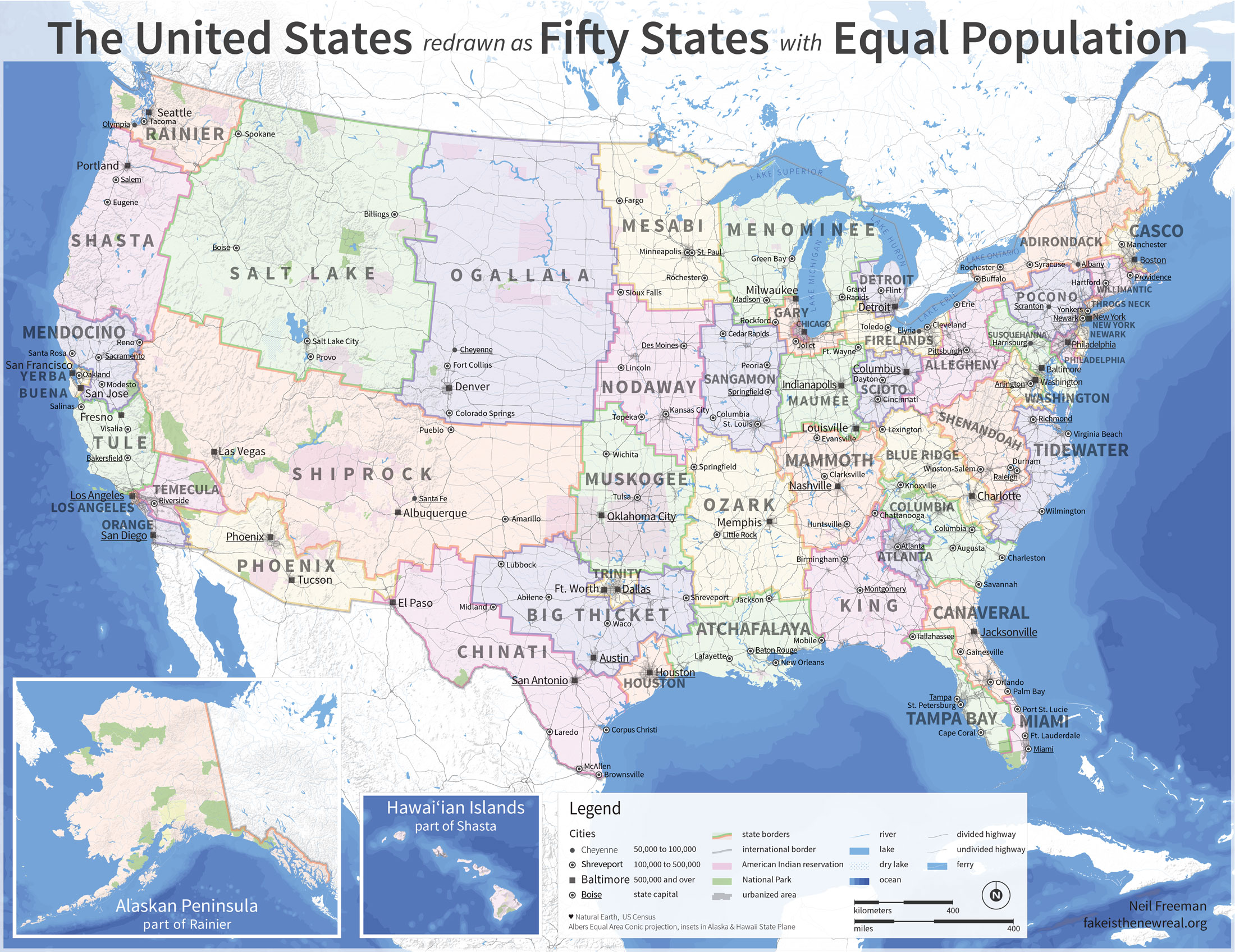lpetrich
Contributor
The Electoral College is well-known for being imperfectly representative. The Senate has even worse disproportions. Each state gets exactly two Senators regardless of its population. However, the Senate has a lower profile than the Presidency, so its disproportions are not as publicized.
Its disproportions are amplified by its filibuster rule. That rule permits a Senator to talk and talk and talk until either (1) the Senator gets what he/she wants or (2) a "cloture" vote of at least 3/5 of the Senate. In recent decades, Senators have been permitted to introduce holds. These are threats to do the traditional kind of filibuster, and they strike me as much like the fake war of Star Trek TOS: "A Taste of Armageddon". That seemed to me to be extremely farfetched, until I learned of what the filibuster had become.
Democracy in decline: the rise of minority rule - Vox
The U.S. Senate is facing a legitimacy crisis – ThinkProgress
The Senate is so crazily designed it would be literally illegal for a US state to copy it - Vox
There is a problem with altering the Senate. In the Constitution, Article V states "... and that no State, without its Consent, shall be deprived of its equal Suffrage in the Senate."
Roosevelt Institute: Fixing the Senate discusses the problem, then considers various fixes.
Its disproportions are amplified by its filibuster rule. That rule permits a Senator to talk and talk and talk until either (1) the Senator gets what he/she wants or (2) a "cloture" vote of at least 3/5 of the Senate. In recent decades, Senators have been permitted to introduce holds. These are threats to do the traditional kind of filibuster, and they strike me as much like the fake war of Star Trek TOS: "A Taste of Armageddon". That seemed to me to be extremely farfetched, until I learned of what the filibuster had become.
Democracy in decline: the rise of minority rule - Vox
The U.S. Senate is facing a legitimacy crisis – ThinkProgress
The Senate is so crazily designed it would be literally illegal for a US state to copy it - Vox
One of the more curious aspects of American democracy is that it is literally unconstitutional for states to adopt the same system of government as the nation as a whole. In the case of Reynolds v. Sims in 1964, the Supreme Court ruled that all state legislature districts have to have roughly equal populations, because the Equal Protection Clause of the 14th Amendment enshrines a principle of "one man, one vote." That means that an institution like the US Senate, with wildly unequal populations in its various "districts," cannot exist at the state level — at least not anymore.
There is a problem with altering the Senate. In the Constitution, Article V states "... and that no State, without its Consent, shall be deprived of its equal Suffrage in the Senate."
Roosevelt Institute: Fixing the Senate discusses the problem, then considers various fixes.

